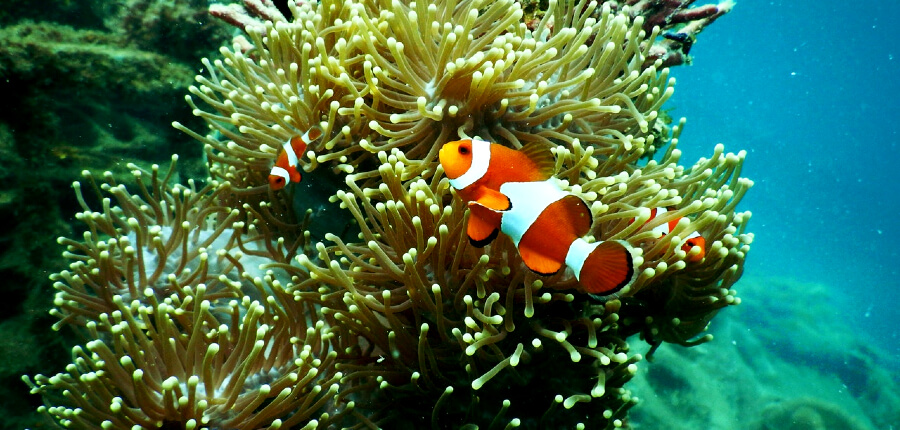When it comes to math, fish do swimmingly. In a paper published recently in the journal Scientific Reports, University of Bonn researchers describe teaching cichlids and stingrays to carry out simple addition and subtraction. Previous studies have shown that fish can count and pick out larger shoals from smaller ones.
What are we to make of this information? According to Dr. Vera Schluessel, who led the University of Bonn study, the experiment confirms that humans underestimate the abilities of other animals. As the evidence of fish’s cognitive and emotional complexity continues to add up, it’s clear that we must treat them with the empathy and respect they deserve.
One easy way to start valuing fish is to stop fishing for fun.
I haven’t always felt this way. Like most people, I grew up believing that fishing was a harmless pastime. My father fished, and when I was a kid, we often took fishing trips together. It pains me to write this now, but back then, tricking small aquatic animals into impaling themselves on hooks, yanking them out of their homes and watching them struggle and gasp for air as we worked the hooks out of their mouths seemed like a perfectly normal thing to do.
Here’s what I know now.
Fish are thinking, feeling beings. Fish—like apes and orcas—can recognize themselves in a mirror, a classic indicator of self-awareness. Researchers from Osaka City University in Japan recorded tiny cleaner wrasses, a type of coral reef fish, attempting to rub off marks that had been placed on their throats or heads while they looked at their own reflections.
Fish form emotional attachments and become depressed when they lose their mates. They prefer to interact with fish who are familiar to them. Biologist Dr. Michael Webster says, “You see little cliques develop between the fish. There are little clusters of fish which hang out together more often than you would expect by chance.” Groupers, wrasses and other types of fish also form bonds with divers who visit them regularly and approach their human friends for a gentle caress or pat on the head.
Fish have unique personalities, develop cultural traditions, use tools and eavesdrop on other fish. Catfish alert each other to predators, and damselfish in distress cry out for help.
And fish feel pain—just as other vertebrates do. According to Dr. Lynne Sneddon, the first researcher to identify pain receptors in fish, “[T]he jury has made its decision and left the building. It is clear that there is ample evidence for pain in fish.” But if we’re honest, we don’t need experts to tell us this. The evidence—the struggling, the gasping for air—is right before our very eyes every time we yank a fish out of the water. We just have to put two and two together.
“People don’t expect much from fish,” says German neuroscientist Dr. Stefan Shuster, “but that’s where they’re wrong. Fish are capable of much more than people think.”
Perhaps we humans are also capable of more than we think and can extend our compassion to all sentient beings, even those we have long misunderstood. Can fish count on you?





